- Lean on Me (1989)
- Stand and Deliver (1988)
- The Miracle Worker (1962)
- Separate But Equal (1991)
- Up the Down Staircase (1967)
- Cheaters (2000)
- The Paper Chase (1973)
- Blackboard Jungle (1955)
- Mr. Holland's Opus (1995)
- Class of 1984 (1982)
- The Man Without a Face (1993)
- Kindergarten Cop (1990)
- Summer School (1987)
- Teachers (1984)
- Gross Anatomy (1989)
 The king of high school pictures, Lean on Me is a heartwarming tale that's based on a true story about
how Joe Clark created a storm of controversy by using unconventional methods of discipline at Eastside High in
Paterson, New Jersey, during the 80's. Thanks to Morgan Freeman's stirring performance, it's scene-by-scene
brilliant in a moving way that captures the essence of the human spirit.
The king of high school pictures, Lean on Me is a heartwarming tale that's based on a true story about
how Joe Clark created a storm of controversy by using unconventional methods of discipline at Eastside High in
Paterson, New Jersey, during the 80's. Thanks to Morgan Freeman's stirring performance, it's scene-by-scene
brilliant in a moving way that captures the essence of the human spirit.
 Edward James Olmos is perfect as Jamie Escalante, having gained 20 pounds and gone for the receding hairline
look to emulate the teacher. On the other hand, Lou Diamond Phillips steals the film. An Oscar nomination for
him shouldn't be out of the question. What he did in Stand and Deliver and La Bamba is the
apogee of his career.
Edward James Olmos is perfect as Jamie Escalante, having gained 20 pounds and gone for the receding hairline
look to emulate the teacher. On the other hand, Lou Diamond Phillips steals the film. An Oscar nomination for
him shouldn't be out of the question. What he did in Stand and Deliver and La Bamba is the
apogee of his career.
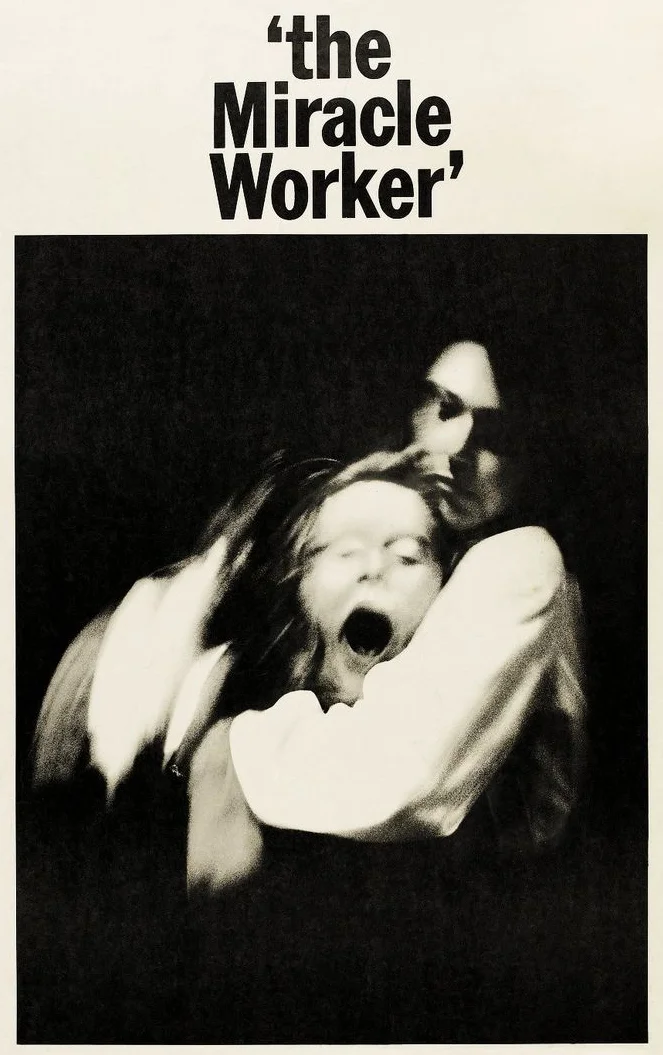 The Miracle Worker is a powerful, moving story about how Helen Keller was shown the light through
language. The Oscar wins for Patty Duke and Anne Bancroft are deserving, and the former's performance is in
the top ten of all time. It's impossible not to be moved by all of this.
The Miracle Worker is a powerful, moving story about how Helen Keller was shown the light through
language. The Oscar wins for Patty Duke and Anne Bancroft are deserving, and the former's performance is in
the top ten of all time. It's impossible not to be moved by all of this.
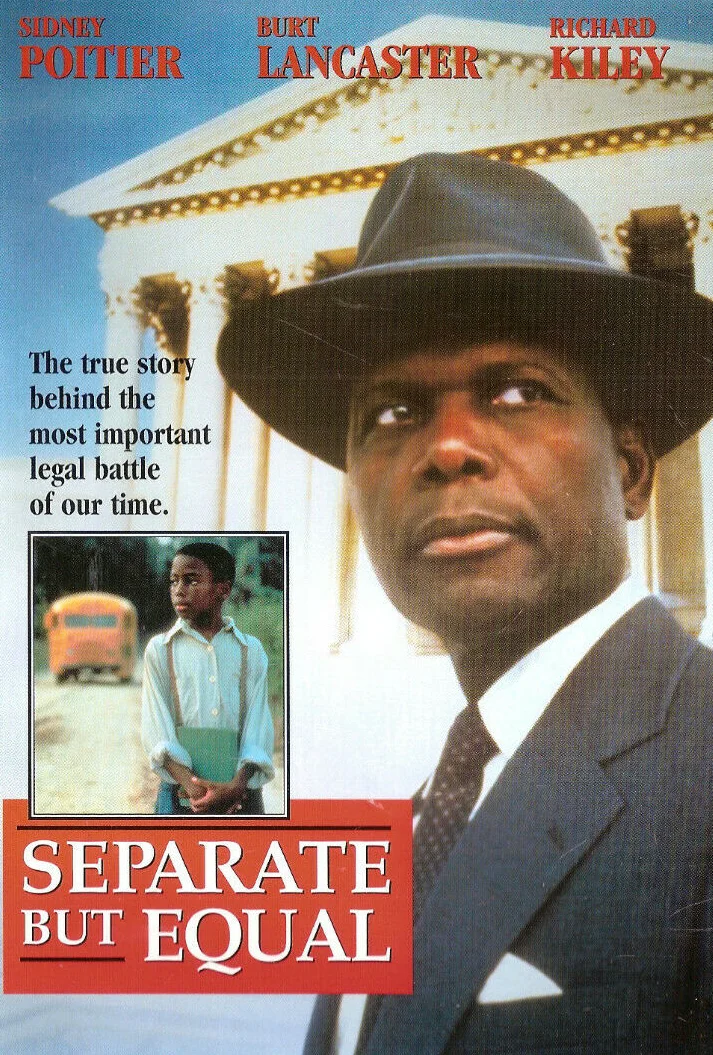 It's the most famous case in U.S. history of education which started with Plessy v. Ferguson and concluded
with Brown v. Board of Education. In between is a 58-year black struggle for equal rights. The final
verdict was the beginning of the end for racial segregation that dominated race relations for so long in the
United States. Hence, there's a lot to learn from this film.
It's the most famous case in U.S. history of education which started with Plessy v. Ferguson and concluded
with Brown v. Board of Education. In between is a 58-year black struggle for equal rights. The final
verdict was the beginning of the end for racial segregation that dominated race relations for so long in the
United States. Hence, there's a lot to learn from this film.
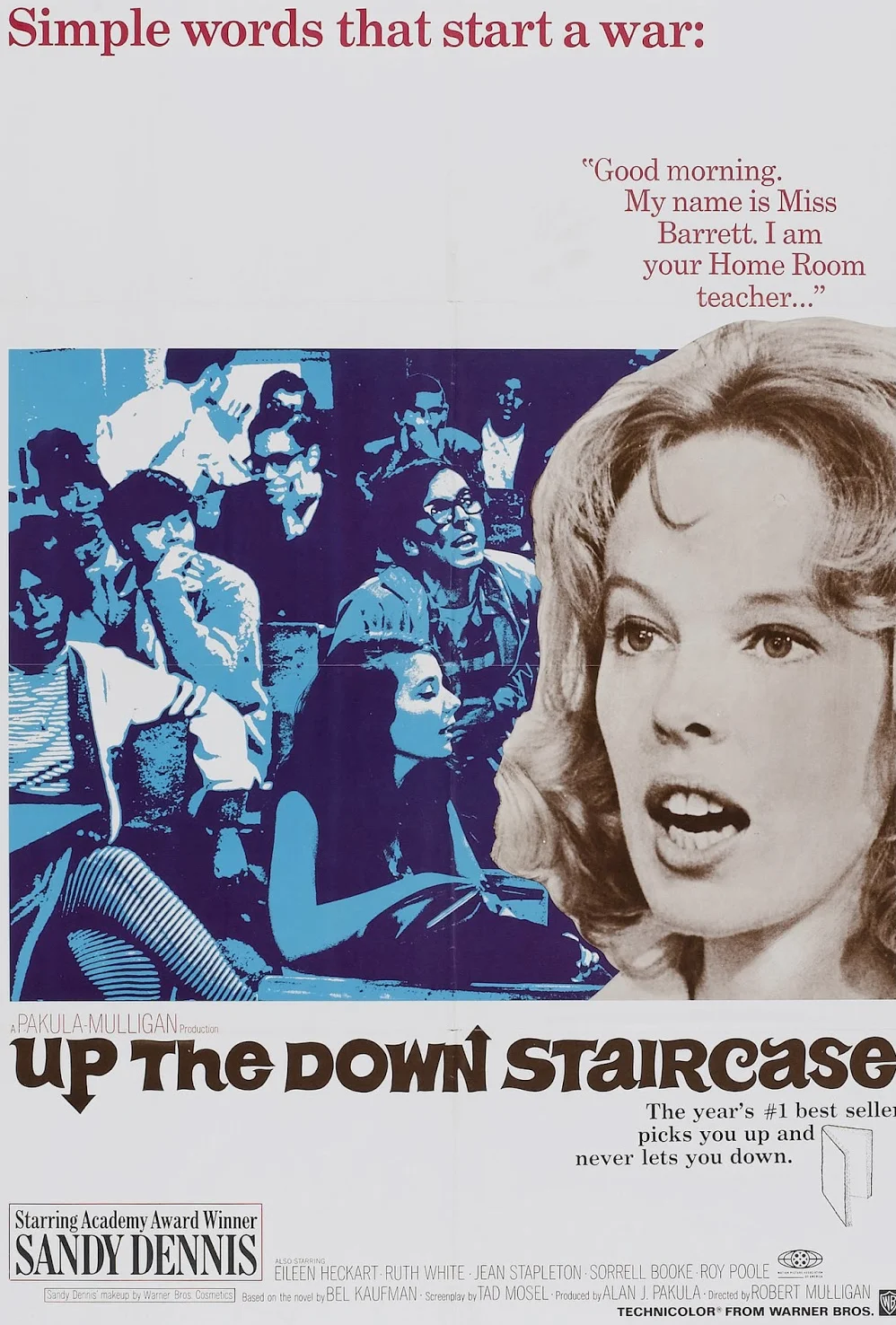 Up the Down Staircase will always stand the test of time because it's a true representation of what
goes on in urban schools. Being a teacher there is an impossibly hard job. Academic expectations are nil.
Common sense is thrown out of the window. Everybody passes, no matter what they do, because handing out F's
isn't allowed. It doesn't matter if somebody knows virtually zero about anything or does nothing in school.
Up the Down Staircase will always stand the test of time because it's a true representation of what
goes on in urban schools. Being a teacher there is an impossibly hard job. Academic expectations are nil.
Common sense is thrown out of the window. Everybody passes, no matter what they do, because handing out F's
isn't allowed. It doesn't matter if somebody knows virtually zero about anything or does nothing in school.
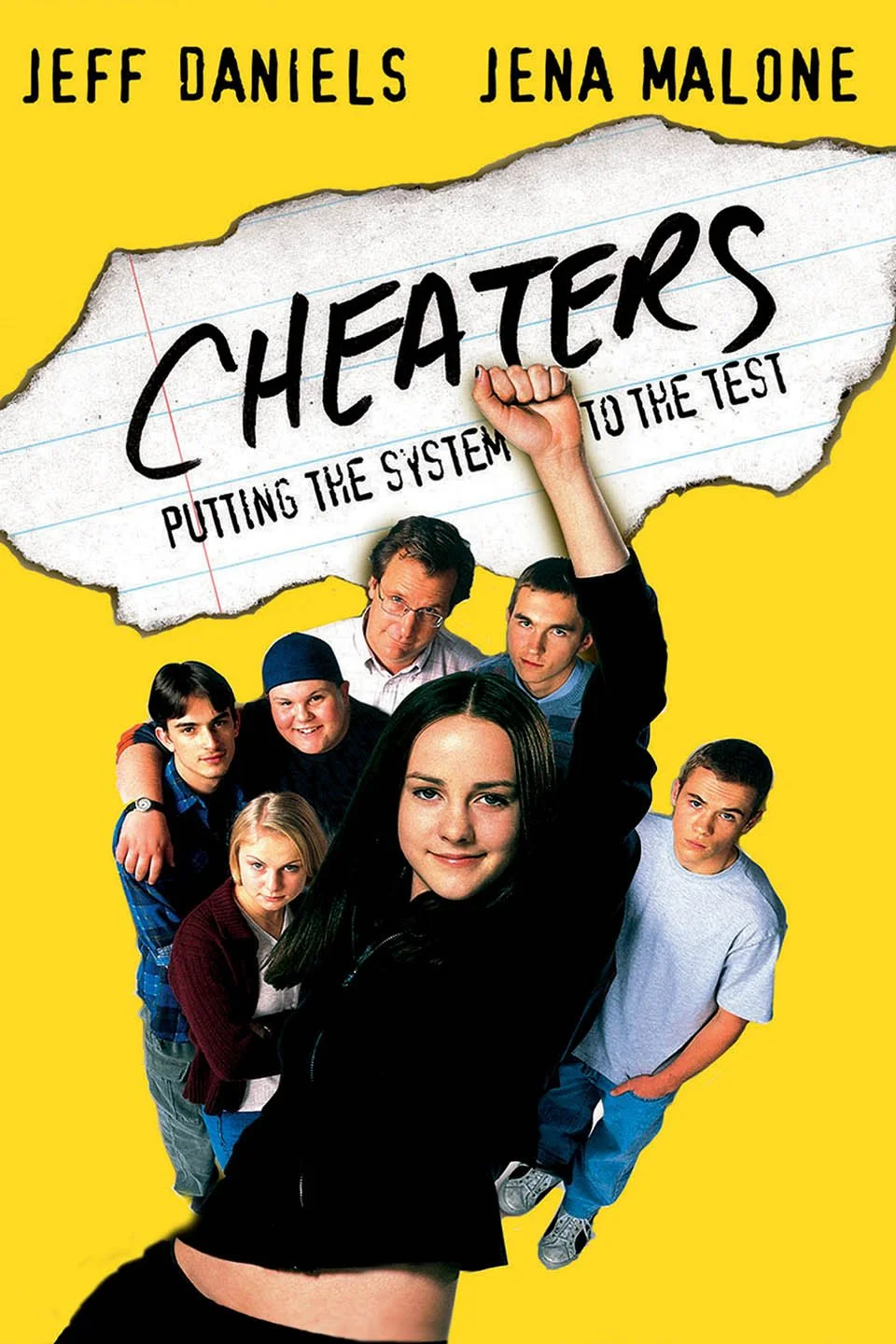 How do students prepare to defend themselves against accusations of academic cheating? Simple: they watch
Stand and Deliver and take notes. It's the most perfect "aha" moment out of many in Cheaters.
The movie is the best when it comes to academic fraud, and the strategies used to get ahead are pretty much
spot-on.
How do students prepare to defend themselves against accusations of academic cheating? Simple: they watch
Stand and Deliver and take notes. It's the most perfect "aha" moment out of many in Cheaters.
The movie is the best when it comes to academic fraud, and the strategies used to get ahead are pretty much
spot-on.
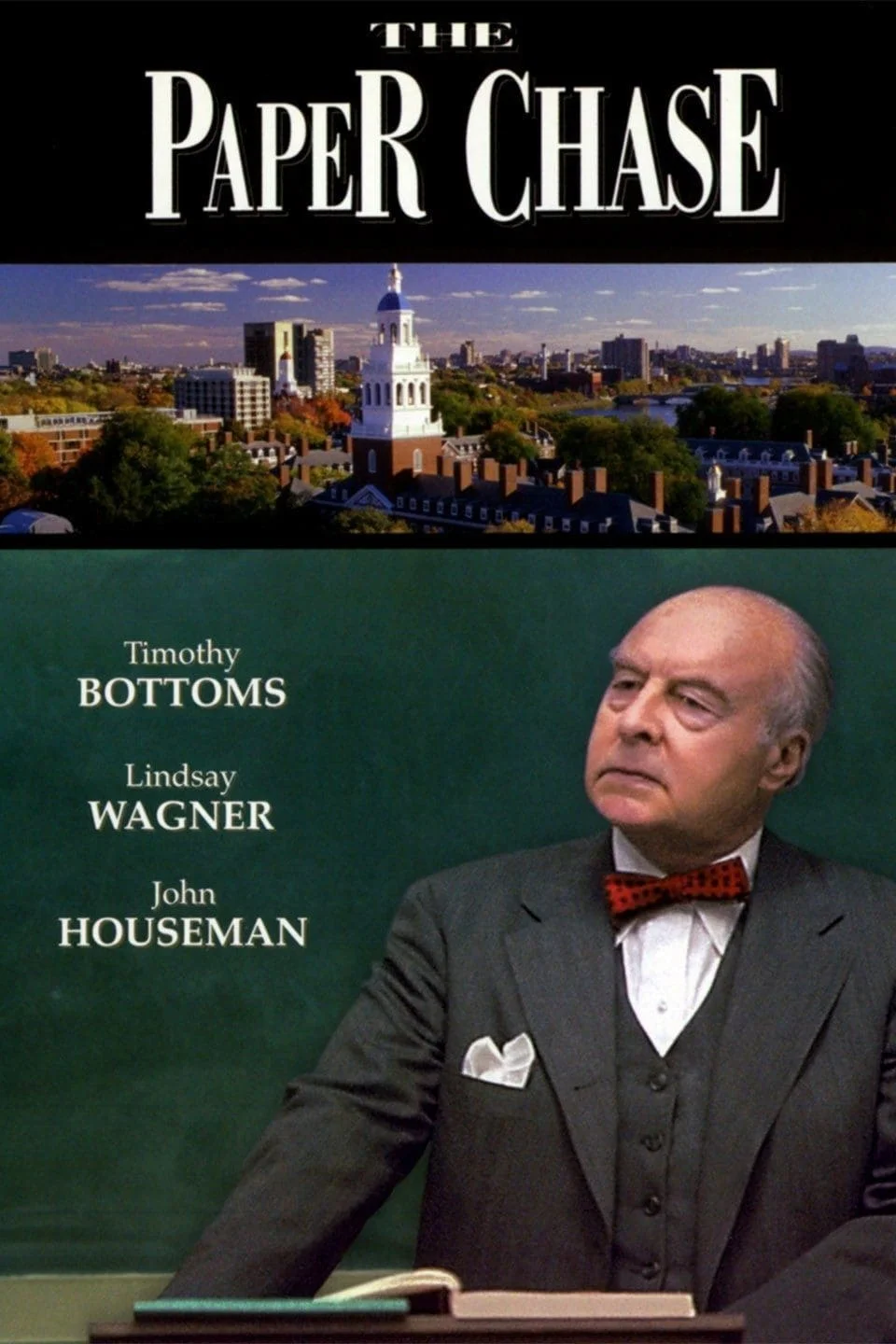 Forget Educating Rita which is a hogwash picture about college. The real deal is The Paper Chase
because it offers perhaps the most realistic perspective of what graduate school is like. Timothy Bottoms' and
John Houseman's performances are incredible with the latter netting him an Oscar win.
Forget Educating Rita which is a hogwash picture about college. The real deal is The Paper Chase
because it offers perhaps the most realistic perspective of what graduate school is like. Timothy Bottoms' and
John Houseman's performances are incredible with the latter netting him an Oscar win.
 I'm sure the people felt the portrayal of the events in Blackboard Jungle were unrealistic when it first
came out, but it's realistic as ever today. The first-year teacher is excellently played by Glenn Ford who
starts out as idealistic, wanting to convey his love of learning to his students and transform their lives
but gets a rude awakening.
I'm sure the people felt the portrayal of the events in Blackboard Jungle were unrealistic when it first
came out, but it's realistic as ever today. The first-year teacher is excellently played by Glenn Ford who
starts out as idealistic, wanting to convey his love of learning to his students and transform their lives
but gets a rude awakening.
 I didn't see Richard Dreyfuss in Mr. Holland but Mr. Holland in Richard Dreyfuss. In other words, it's been
a wonderful piece of acting. Mr. Holland's battles as teacher are realistic, and anyone who has been in his
position can relate to them. Of course, music and art programs are usually victims of budget cuts because
they're viewed as irrelevant in the world of standardized tests. That's a shame, really, when football should
be the first to go.
I didn't see Richard Dreyfuss in Mr. Holland but Mr. Holland in Richard Dreyfuss. In other words, it's been
a wonderful piece of acting. Mr. Holland's battles as teacher are realistic, and anyone who has been in his
position can relate to them. Of course, music and art programs are usually victims of budget cuts because
they're viewed as irrelevant in the world of standardized tests. That's a shame, really, when football should
be the first to go.
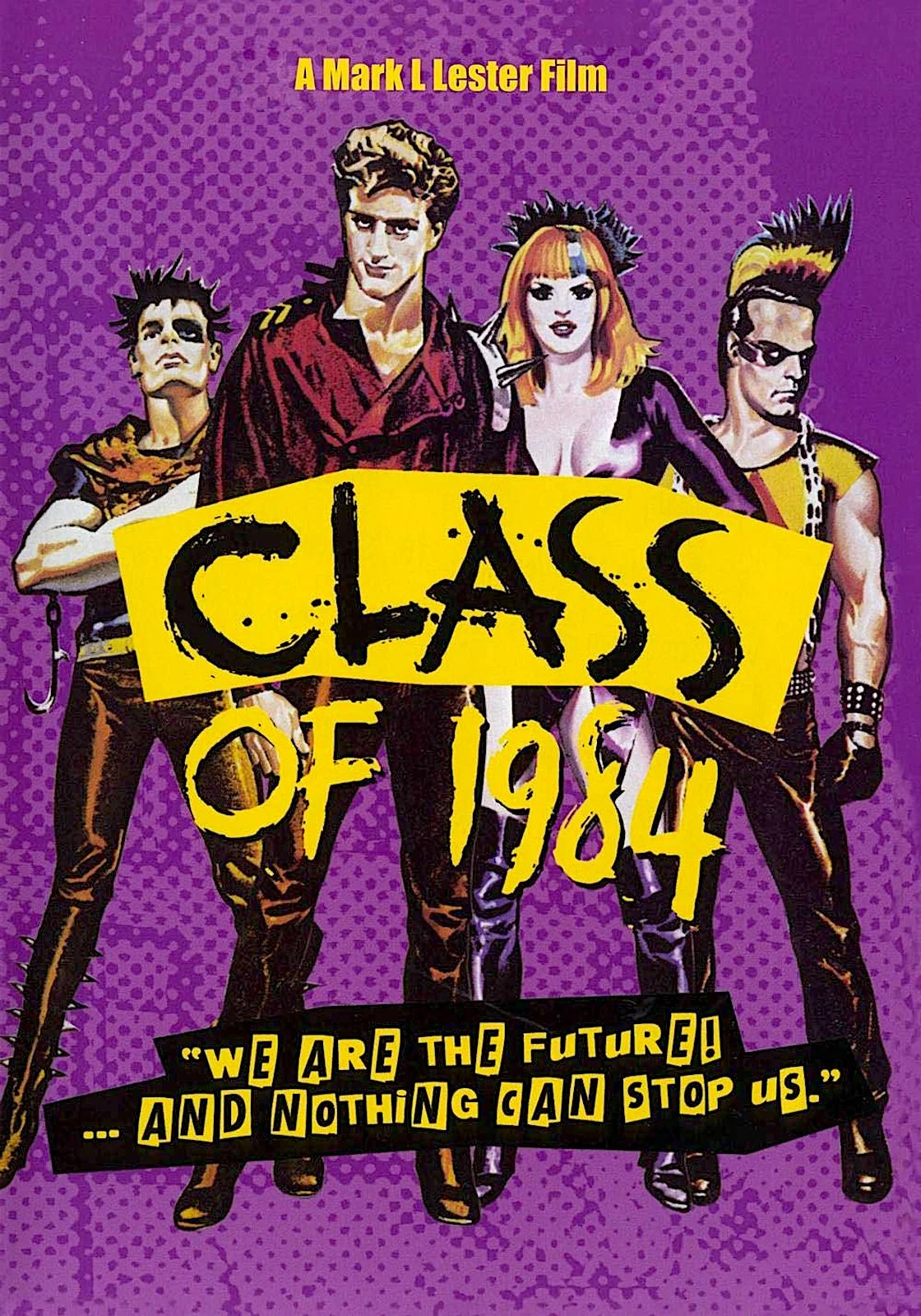 Class of 1984 may have been extreme in 1982, but it isn't far from the truth of what goes on in
classrooms nowadays, especially in urban schools. Teachers try their best to deal with gangs and juvenile
delinquent behaviors. Alice Cooper's song "I Am the Future" keeps being played, and it's a foreshadowing
of what's to come in terms of generational differences.
Class of 1984 may have been extreme in 1982, but it isn't far from the truth of what goes on in
classrooms nowadays, especially in urban schools. Teachers try their best to deal with gangs and juvenile
delinquent behaviors. Alice Cooper's song "I Am the Future" keeps being played, and it's a foreshadowing
of what's to come in terms of generational differences.
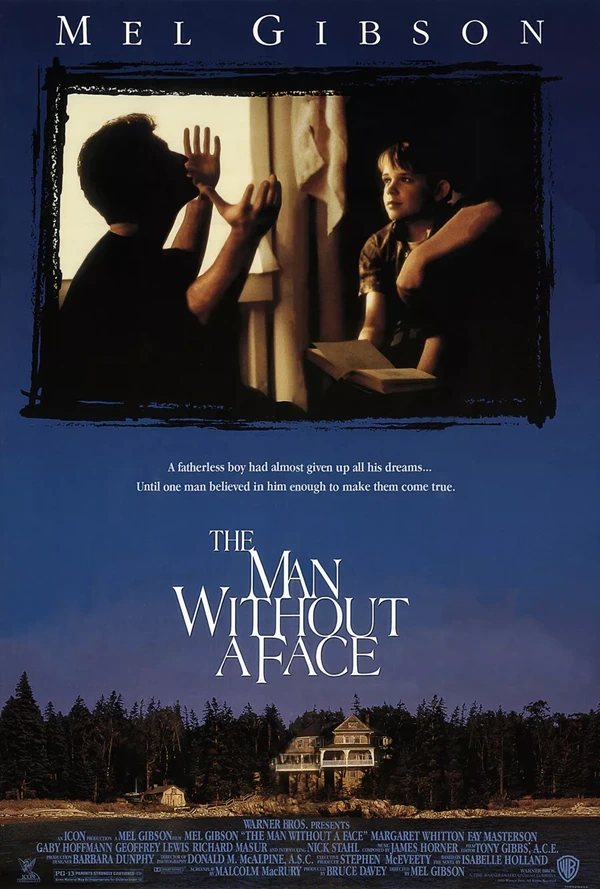 The first film directed by Mel Gibson, The Man Without a Face is his most underrated. Well-acted, good
story, and plenty of depth are the hallmarks that make this one a compelling viewing. It's a hybrid of
Educating Rita, Shane, and Dolores Claiborne. Anyone can be easily swayed by Mel Gibson's
star power, but Nick Stahl steals the show.
The first film directed by Mel Gibson, The Man Without a Face is his most underrated. Well-acted, good
story, and plenty of depth are the hallmarks that make this one a compelling viewing. It's a hybrid of
Educating Rita, Shane, and Dolores Claiborne. Anyone can be easily swayed by Mel Gibson's
star power, but Nick Stahl steals the show.
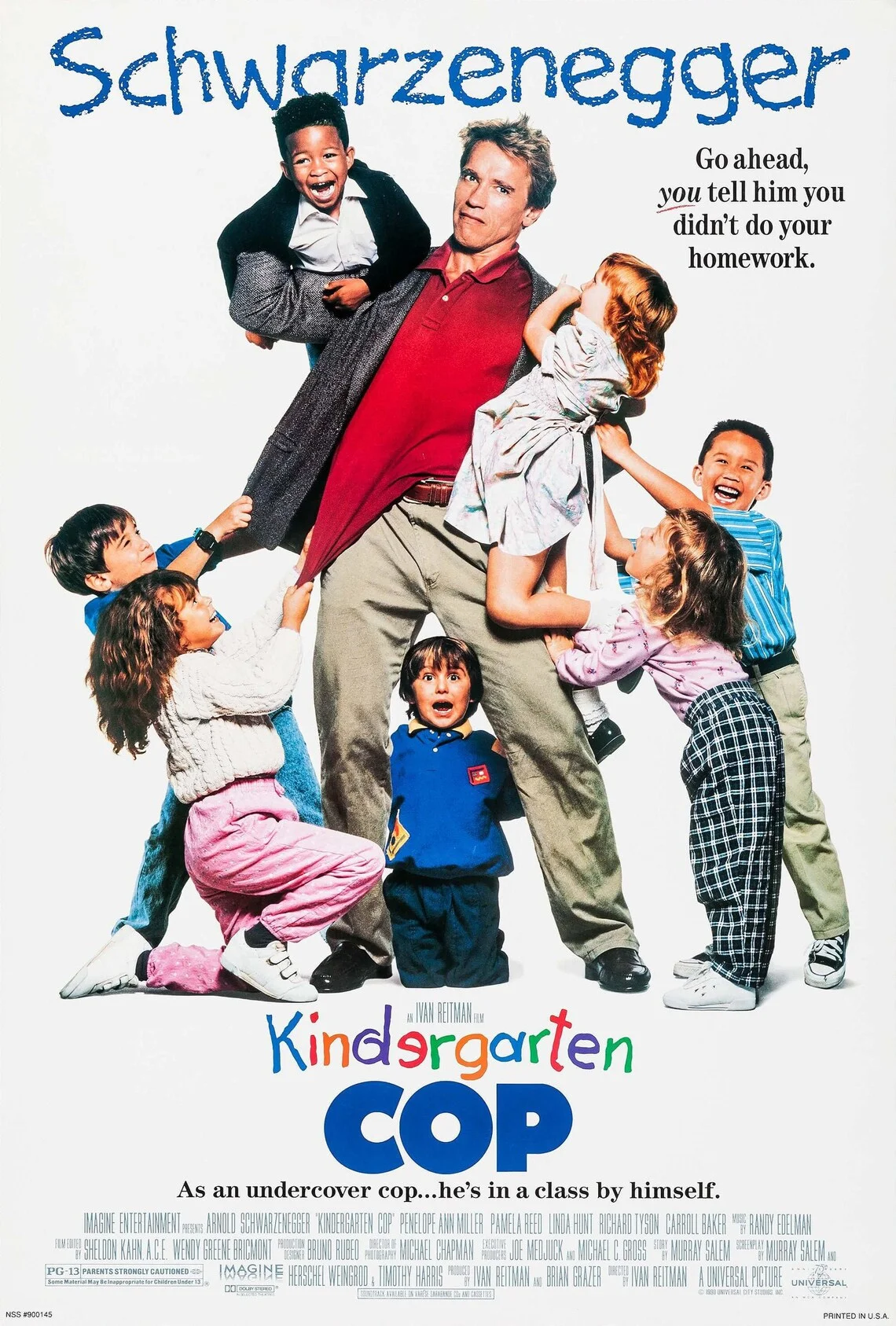 Kindergarten Cop is one of Arnold Schwarzenegger's best films. He's the right choice given his massive
physique but still has a hard time with little kids. Arnold has nice moments when he's teaching discipline.
There are no scenes that are stupid or gross-out; they're typical of what a kindergartner will do or say. The
only remaining question unanswered at the end is: will John Kimble go back to being a cop or make the switch
to a kindergarten teacher?
Kindergarten Cop is one of Arnold Schwarzenegger's best films. He's the right choice given his massive
physique but still has a hard time with little kids. Arnold has nice moments when he's teaching discipline.
There are no scenes that are stupid or gross-out; they're typical of what a kindergartner will do or say. The
only remaining question unanswered at the end is: will John Kimble go back to being a cop or make the switch
to a kindergarten teacher?
 Here's a well-known comedy classic from the 80's, Summer School, that holds up well today. The students
didn't pass the test but only to show an improvement of their scores which is the most realistic outcome
given their low abilities. Most teachers have dealt with such characters in the past.
Here's a well-known comedy classic from the 80's, Summer School, that holds up well today. The students
didn't pass the test but only to show an improvement of their scores which is the most realistic outcome
given their low abilities. Most teachers have dealt with such characters in the past.
 Those who worked in the trenches will find Teachers all too familiar and can identify most of the
characters by working with them before. Judd Hirsch's and Lee Grant's are perfect examples that represent
over 95% of the bureaucrats who exist in schools nowadays. That's why the system is impossible to overcome
because it's all about making parents and their kids happy as much as possible in spite of no education
that's going on.
Those who worked in the trenches will find Teachers all too familiar and can identify most of the
characters by working with them before. Judd Hirsch's and Lee Grant's are perfect examples that represent
over 95% of the bureaucrats who exist in schools nowadays. That's why the system is impossible to overcome
because it's all about making parents and their kids happy as much as possible in spite of no education
that's going on.
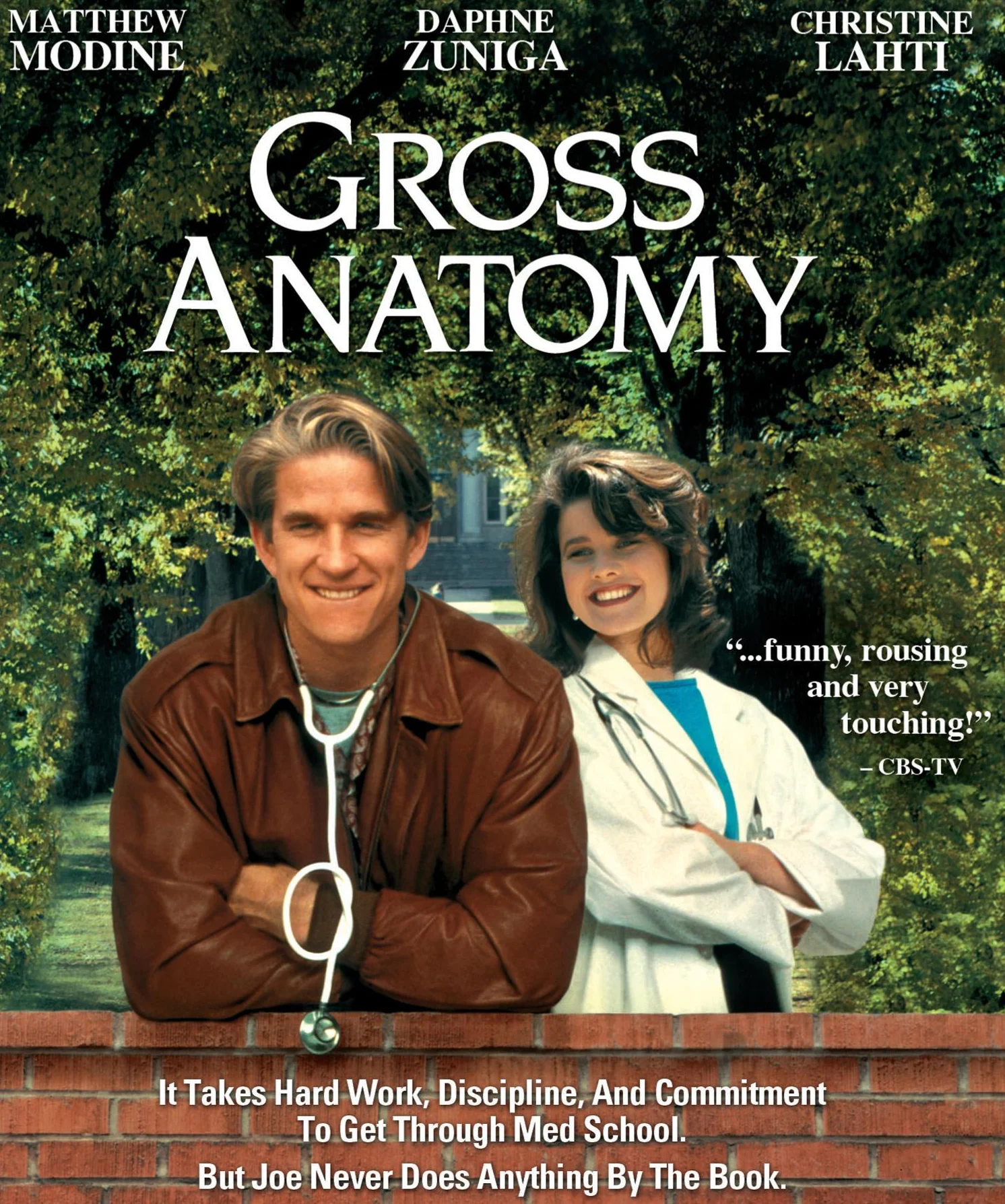 What particularly impressive is how mature Gross Anatomy is in regard to the serious study of medicine.
The viewers are taken through the arduous journey of medical school in terms of studies, giving them an idea
how difficult it is for many future doctors to be where they are at. That's why it's easy to have a lot of
respect for them.
What particularly impressive is how mature Gross Anatomy is in regard to the serious study of medicine.
The viewers are taken through the arduous journey of medical school in terms of studies, giving them an idea
how difficult it is for many future doctors to be where they are at. That's why it's easy to have a lot of
respect for them.